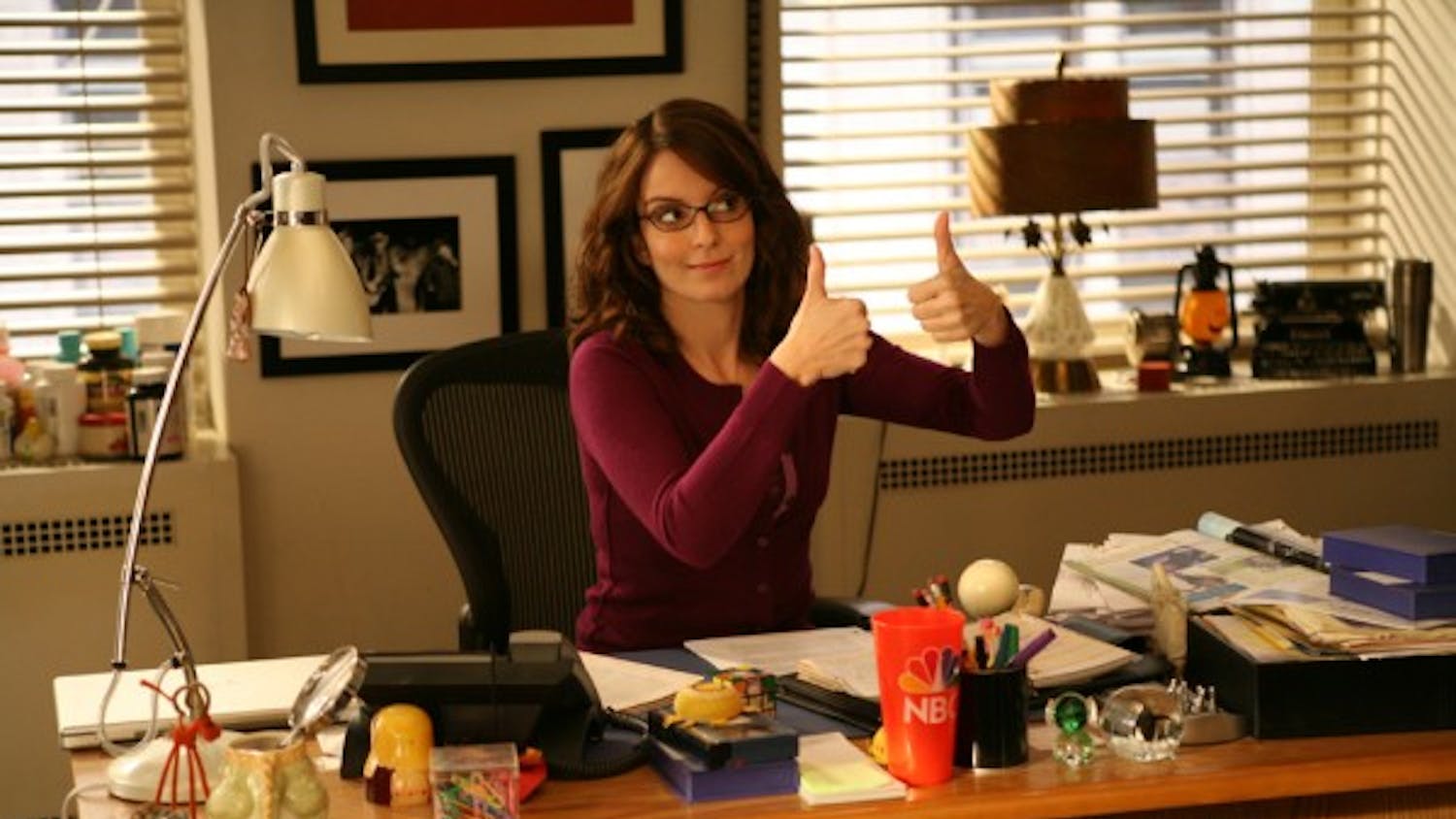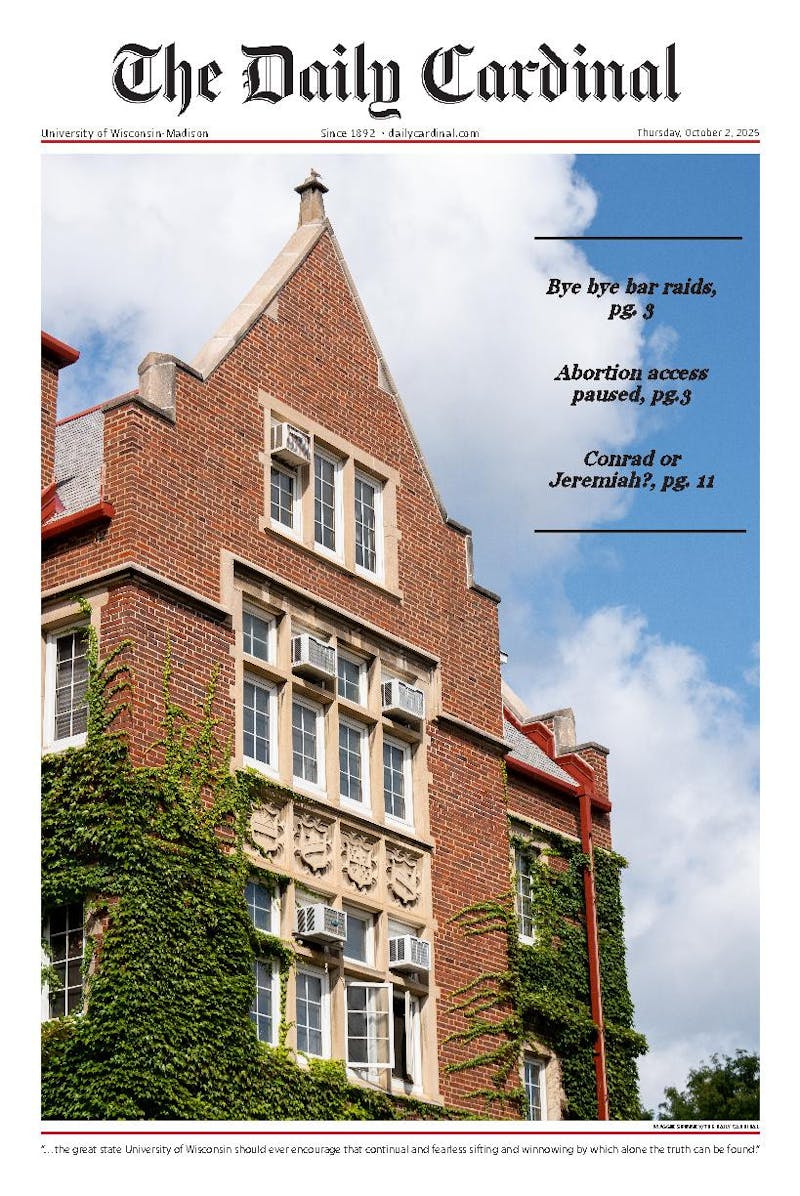Hello again! I apologize for my long hiatus, dear readers, but if you attended or are attending any of the events of Sexual Assault Awareness Month, Sexual Health Week, or Out and About Month, you know I have not been sitting around doing nothing—major props to PAVE, Sex Out Loud, the LGBT Campus Center, and all of our co-sponsors for helping to make these April events so successful.
In recognition of OAM, this week's column is written by queer students for straight students to help enhance allyship. I know many exceptional allies, and it's great to see increasing support for LGBT folks (statistically speaking). Nonetheless, while having a rainbow button on your backpack or joining ""I Bet I can find 1,000,000 people who support Gay Rights"" is vastly preferable to sporting a ""God Hates Fags"" sign outside a church somewhere, that alone does not earn the ""ally"" title. Therefore, some friends and I weighed in on what makes an exemplary ally and provided some tips to help make all of us better at supporting each other.
1. What are some hallmarks of a good ally?
Willingness to learn was universally mentioned as a characteristic of good allyship. Says J., ""If you come into your role as an ally thinking that just because you don't hate or wish bad things upon gay people you're the best ally ever, then I can guarantee that not only are you not the best ally ever, you're actually a really shitty ally."" An ally is someone who supports or shares the goals of a marginalized group, but does not experience life as a member of that group. Thus, it's important to remember not only that there will be a learning curve (and that some things just cannot be learned or taught), but also that not knowing everything does not make you a bad ally—or a bad person. Allies have their ""own unique role[s] in shaping a society of free equals,"" says H., and a good ally understands that role is determined not by his/her own needs and experiences, but by the needs and experiences of the community to which s/he tries to be an ally.
Further, E. emphasizes that allyship is not a static goal or state of being: ""I believe one of the biggest pieces of being an ally in relation to all the various forms of oppression is having an understanding that being an ally isn't a goal, but a journey... It's a lifelong process of hard work and continued education.""
2. What are some characteristics of a not-so-good ally?
This was a long list. Says H.: ""A not-so-good ally thinks that his/her tolerance is enough."" Adds E.: ""[T]he expectation of gratitude and thanks from me (as a queer person), [or] the ally that wants credit and appreciation after not doing the hard work first."" C. adds a big one: ""Also, being quiet when you hear anti-LGBT comments/sentiments. That silence can sometimes hurt the community more than those who speak out against us.""
Remember, allyship is not something one turns on and off. If you are only respectful and supportive of LGBTQ voices in what you perceive to be ""queer spaces,"" then you are not an ally at all.
3. What is one thing you would like straight students to know about queer communities?
Ironically enough, everyone emphasized the diversity of voices in ""the queer community."" Says R.: ""‘The queer community' often gets portrayed as some unified force, and while it's true we have some shared experiences, there is also a lot of diversity and debate between many people who might all identify as being part of the community."" C. also debunks the idea of a communal gay utopia: ""There is still discrimination based on race, gender, or many other issues, as well.""
H. hits one point which encompasses all of the questions we've discussed so far—one person (queer or not) cannot and should not be expected to teach someone everything there is to know about queerhood. ""Being queer means something different to everyone... Most of us are probably still figuring out what it means to us to be queer.""
4. What is the most common/damaging/annoying misconception straight students have about queer communities?
H. and J. were all over this. Says H.: ""A common misconception... is that if you are in an opposite-sex relationship you are straight, and if you are in a same-sex relationship you are gay."" J. took the words right out of my mouth when echoing this idea: ""I can't even tell you how fucked up your brain can get when you are bi. It's like people don't believe you when you tell them [how you identify], and depending on who you're fucking or have fucked before, they will use that to explain how you are actually straight or actually gay. And let me tell you, I've gotten this attitude from both straight and queer people.""
C. and E. both focused on the damage caused by seemingly ""little things"" that can be extremely harmful. ""I think the phrase ""that's gay"" in particular has a very devastating effect for students... I think we need to have more focus on what stereotypes and common phrases can really do to people,"" says C.E. also notes that while most people are capable of identifying overt acts of homophobia as hurtful and unacceptable, ""[those acts] are also supported by other more ‘covert' actions of oppression. For example, jokes and stereotypes about queer people, denying or having inaccessible services to queer people, and expecting rigid gender roles and presentations.""
5. What are the most important obstacles that need to be overcome in the advancement and acceptance of LGBTQ communities?
Each person unequivocally stated how necessary it is to recognize ""marriage is not the only ‘issue' that queer people are fighting for"" (E). Marriage equality is a start, but the downside to such a public fight tends to be that other issues are obscured. According to R.,
""...All of the focus is on gay marriage, and maybe a little bit more on visitation rights now [with Obama's executive order]. But even though those issues are really important, people don't realize that in a lot of places [here included], just being publicly identified or perceived as queer can still put your life in danger."" Adds C., ""I don't think most people realize the disproportionate rates at which LGBTQ kids commit suicide or are homeless. It's really a tragedy.""
Finally, E. offers yet another note on our language. We often talk about ""gay"" rights or ""rights for LGBT people"", and though we might not mean it as such, this language implies the rights in question are some kind of special or unique rights for queer folks. They are neither special nor unique. Says E.: ""We are fighting for our human rights. And we will prevail.""
Got questions about sex? E-mail Erica at sex@dailycardinal.com.





